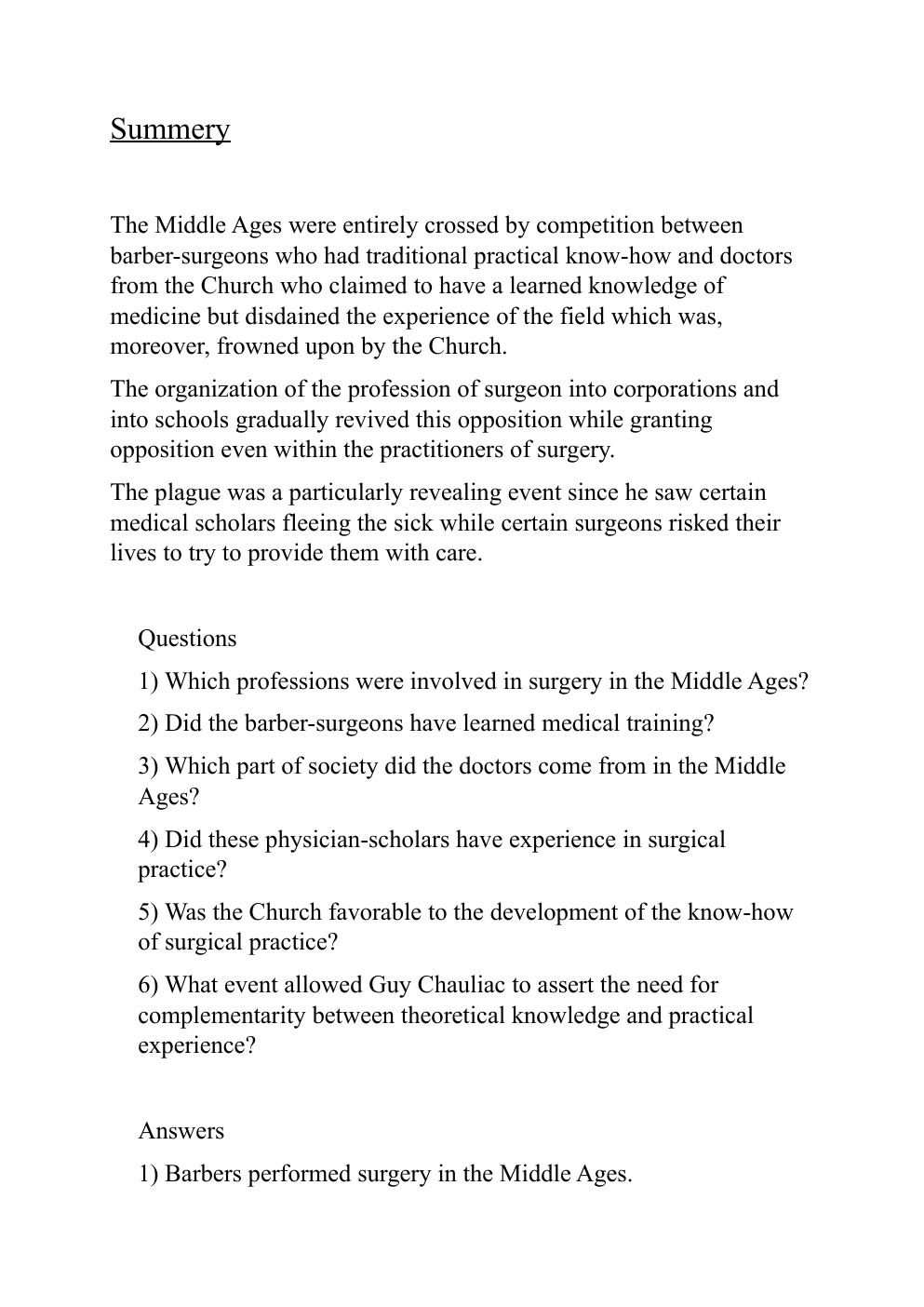Tue barber surgeons
Publié le 08/12/2023
Extrait du document
«
Summery
The Middle Ages were entirely crossed by competition between
barber-surgeons who had traditional practical know-how and doctors
from the Church who claimed to have a learned knowledge of
medicine but disdained the experience of the field which was,
moreover, frowned upon by the Church.
The organization of the profession of surgeon into corporations and
into schools gradually revived this opposition while granting
opposition even within the practitioners of surgery.
The plague was a particularly revealing event since he saw certain
medical scholars fleeing the sick while certain surgeons risked their
lives to try to provide them with care.
Questions
1) Which professions were involved in surgery in the Middle Ages?
2) Did the barber-surgeons have learned medical training?
3) Which part of society did the doctors come from in the Middle
Ages?
4) Did these physician-scholars have experience in surgical
practice?
5) Was the Church favorable to the development of the know-how
of surgical practice?
6) What event allowed Guy Chauliac to assert the need for
complementarity between theoretical knowledge and practical
experience?
Answers
1) Barbers performed surgery in the Middle Ages.
2) The barber-surgeons had no scholarly medical training.
3) Doctors in the Middle Ages came from the Church.
4) These physician-scholars had almost no experience of surgical
practice.
5) The Church was absolutely against the development of the skill
of surgical practice.
6) The fact that he succeeded in treating many people of the plague
enabled Guy Chauliac to assert the need for complementarity
between theoretical knowledge and practical experience.
Bibliography :
1)ENGLISH MEDICAL PRACTITIONERS, 1340-1530
Robert S.
Gottfried
Bulletin of the History of....
»
↓↓↓ APERÇU DU DOCUMENT ↓↓↓
Liens utiles
- Tout ce qui ne me tue pas me rend plus fort
- Trop d'informations tue-t-il l'information ?
- d ) P ar le système de société q ui n ous entoure L'audio-visuel tue l a l ecture (la r adio, l a t élévision, les cassettes o ù des livres, eux-mêmes, sont enregistrés).
- Il arrive qu'un asservissement total de l'être aimé tue l'amour de l'amant.
- la connaissance de soi, tout en sachant, comme l'avait su Benjamin Constant dans Adolphe, que « l'analyse tue la spontanéité ».








